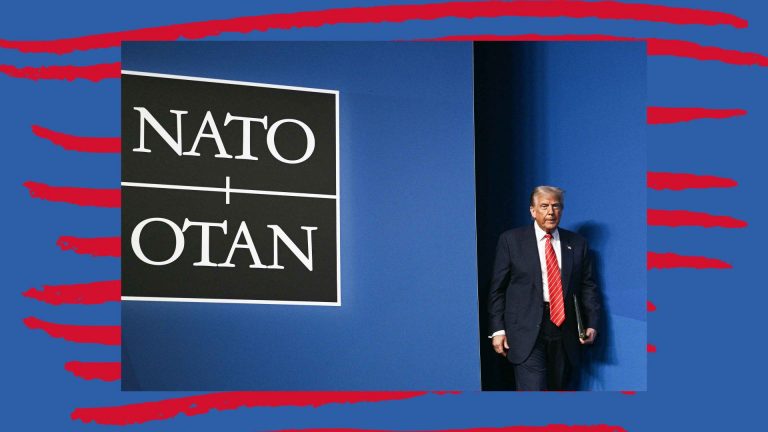Katie Lam is a “rising star” in the Conservative Party. She must be, as virtually every newspaper article that mentions her says so. Moreover, the Westminster rumour mill insists she’s being advised behind the scenes by Brexit architect Dominic Cummings, as it tends to (with varying degrees of accuracy) for any newly-prominent Tory frontbencher.
Lam certainly seems to share Cummings’s malleable view of promises, and of international treaty agreements. The Conservative MP – who is a member of the shadow Home Office team, meaning that her policy pronouncements are at least nominally official party policy – made headlines last weekend by suggesting a drastic escalation in Tory policy on deportations.
Her idea was to suggest that both “indefinite leave to remain” and “settled status” were neither indefinite nor settled – saying she would deport any such residents who were not net contributors to the UK, as measured by their salaries.
Yet both legal statuses are intended to be permanent and only revoked in the case of serious criminal activity or exceptional circumstances. In the case of settled status – a legal position created by the Brexit treaty, guaranteeing the rights of EU citizens in the UK in exchange for the same treatment for UK citizens in Europe – any alteration to these rights would come with immediate consequences.
Lam’s policy would change the very nature of UK government: it would require US-style mass deportation squads to enact, it would make the UK one of the least attractive countries in the world for highly skilled migration – potentially killing the UK’s tech and finance sectors, along with the NHS at a stroke – and it would give the UK pariah status on the international stage. Why would any nation sign any kind of deal with the UK if it openly reneged on one as important as the EU exit treaty?
And yet the political reaction to Lam’s remarks has been muted, at best. The absence of any smackdown from Kemi Badenoch’s office suggests that the Conservative leader (in name, at least) is happy for this to be her party’s official policy.
Labour was silent for a full day after Lam’s remarks, despite being repeatedly chased by the Guardian for a response. Eventually, on Tuesday, the governing party offered a response from a “Labour spokesman” that was worth reading in full, if only to see how little it says:
“The Tories want to retrospectively change the rules to deport people who have been in this country and contributed to our society for decades. They would separate British children from their parents and expel doctors and nurses who have been serving patients in the NHS for years.
“We welcome those who come to this country, legally, and give more than they take. We believe the right to stay here must not be automatic, but that those who play their part should be able to earn that right.”
The first paragraph of this anodyne statement simply states what Lam’s new policy is. The second paragraph barely addresses it, let alone condemns it.
Keir Starmer showed how rapidly he is able to react to news stories when he wants to, most recently when he broke the convention of leaving operational matters to police and local politicians by insisting that fans of Maccabi Tel Aviv should be able to attend a European game at Aston Villa. The prime minister reminded everyone he can comment whenever he wants to – so the simple fact of this bland statement with no-one’s name attached to it says more than its contents ever could.
The Liberal Democrats did better, with a statement in Ed Davey’s name stating that “People who have come to the United Kingdom legally, played by the rules and made it their home do not need to ‘go home’. This is their home”.
But the best response so far comes from Sunder Katwala, the director of the British Future think tank, and Rob Ford, Professor of Politics at the University of Manchester. Both men have been flagging that Lam’s migration policy is so extreme that no-one has tried it since it was attempted by the Ugandan military dictator Idi Amin in 1972. Now that is what a political attack line looks like.
Labour employs no shortage of people who know how to craft such attacks, but has clearly ordered them not to do so on this issue – feeding into fears that the party is so afraid of its own shadow on migration that aside from very occasional speeches from Starmer, it will let even the most extreme rhetoric go entirely unchallenged.
Suggested Reading


The unsettling state of settled status
This is not only craven – and a moral failure, leaving millions of legal permanent residents in the UK fearing for their future, and with no-one standing up for them in government – but it is politically stupid, too. As for all that the UK public seem angry about immigration, even a brief scratch below the surface figures shows they are far less extreme than leading politicians have become.
Polling conducted by YouGov early this summer found a huge 45% of the British public said they would support allowing no new migrants into the UK, along with “requiring large numbers of migrants who came to the UK in recent years to leave”. These are the kind of polling figures that panic Number 10 on the issue.
But digging into the polling figures found two things. The first is that the public deeply misunderstand migration. Of those who thought that large numbers of migrants should be required to leave, 72% thought there were more illegal migrants in the country than people here legally – but even using the most extreme numbers claimed for illegal migrants, that is wildly untrue.
There are more than 10 million legal migrants in the country, and Zia Yusuf of Reform says that 1.2 million people are in the UK illegally. Taking this disputed figure as correct, there are more than eight legal migrants for every person here illegally.
When the public is asked about people who moved to the UK legally, and who are in work – which is the vast majority of migrants – they generally support them staying. Whether because of populist politicians, the right wing media, social media misinformation or a combination of all three, ordinary Brits have picked up a deeply distorted picture of what’s actually happening.
More importantly, though, many voters who want extreme action on immigration change their minds when they are presented with some of the trade-offs that such action would entail. Voters who supported closing the borders to new arrivals and deporting many people already here were asked whether they would prioritise making sure the NHS was fully staffed, even if it meant legal migration rising, versus reducing legal migration but suffering NHS shortages. They supported the NHS 47% to 29%.
When asked about attracting the best and the brightest to the UK vs reducing migration, they split 40% to 38%. Skills shortages split 39% to 40%.
Even among the most vocal supporters of radical action on immigration, in other words, support for such action plummets when voters are asked about the consequences. What this means in political terms is that this argument is winnable – if the government just dared to actually push back against its extremist opponents, it could change minds.
A large portion of the public want lower immigration and to take action on small boats. But they don’t want it at any price – if they are told what the effects of such extreme acts would be, support for them will plummet.
At the same time, Labour is losing more voters to the Greens and the Lib Dems than it is losing to Reform, not least because many are appalled at Labour’s cowardice on immigration – at seeing the government essentially concede the argument to Reform and the newly extremist Conservatives without even trying to fight.
All the evidence suggests that if the government just tried to make the argument, it might even win. Their actions, though, suggest that they’ve given up already – in which case, the years until the next general election will be a gloomy slog indeed.
James Ball is political editor of The New World












